March 16, 2021
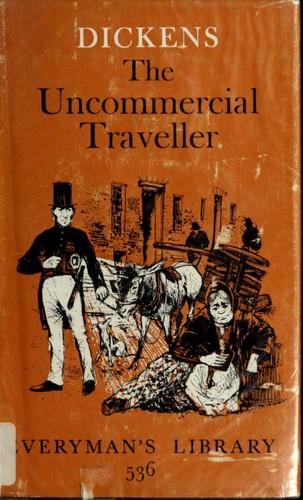 I have a tear in my eye, as while I could probably have a fair more Cocktail Talks from the Charlie Dickens collection of essays The Uncommercial Traveller, for now (but perhaps not forever), this will our last one. If you’ve missed any of the previous four, then be sure to read The Uncommercial Traveller Cocktail Talks Part 1, Part II, Part III, and Part IV, and while you’re in the reading mood, check out all the Dickens Cocktail Talks. Don’t read so much that your eyes tire, however, as you won’t want to miss the below quote. From one of the laugh-out-loud-ier pieces in the collection (and there are many funny scenes throughout, so that’s saying something), called “A Little Dinner in an Hour,” the below quote is just a small part of a regrettable dining experience Dickens has with his pal Bullfinch, when they are traveling for some business and decide to book a meal at a local spot that once was rumored to be worthy. But now leaves much to be desired! Ah, I wish I could have been there to watch it all unfold (if not to actually partake in it). A fine end to our Cocktail Talk tour through the book. Sherry, please!
I have a tear in my eye, as while I could probably have a fair more Cocktail Talks from the Charlie Dickens collection of essays The Uncommercial Traveller, for now (but perhaps not forever), this will our last one. If you’ve missed any of the previous four, then be sure to read The Uncommercial Traveller Cocktail Talks Part 1, Part II, Part III, and Part IV, and while you’re in the reading mood, check out all the Dickens Cocktail Talks. Don’t read so much that your eyes tire, however, as you won’t want to miss the below quote. From one of the laugh-out-loud-ier pieces in the collection (and there are many funny scenes throughout, so that’s saying something), called “A Little Dinner in an Hour,” the below quote is just a small part of a regrettable dining experience Dickens has with his pal Bullfinch, when they are traveling for some business and decide to book a meal at a local spot that once was rumored to be worthy. But now leaves much to be desired! Ah, I wish I could have been there to watch it all unfold (if not to actually partake in it). A fine end to our Cocktail Talk tour through the book. Sherry, please!
‘It’s quite impossible to do it, gentlemen,’ murmured the waiter; ‘and the kitchen is so far off.’
‘Well, you don’t keep the house; it’s not your fault, we suppose. Bring some sherry.’
‘Waiter!’ from Mr. Indignation Cocker, with a new and burning sense of injury upon him.
The waiter, arrested on his way to our sherry, stopped short, and came back to see what was wrong now.
‘Will you look here? This is worse than before. Do you understand? Here’s yesterday’s sherry, one and eightpence, and here we are again two shillings. And what the devil does ninepence mean?’
This new portent utterly confounded the waiter. He wrung his napkin, and mutely appealed to the ceiling.
‘Waiter, fetch that sherry,’ says Bullfinch, in open wrath and revolt.
‘I want to know,’ persisted Mr. Indignation Cocker, ‘the meaning of ninepence. I want to know the meaning of sherry one and eightpence yesterday, and of here we are again two shillings. Send somebody.’
The distracted waiter got out of the room on pretext of sending somebody, and by that means got our wine. But the instant he appeared with our decanter, Mr. Indignation Cocker descended on him again.
‘Waiter!’
— Charles Dickens, The Uncommercial Traveller
March 9, 2021
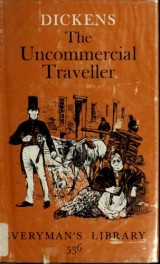 While this isn’t going to turn into The Uncommercial Traveller blog – though that wouldn’t be a horrible idea, honestly – we do have a few more stops with the wandering Charles Dickens, as he wanders through London and the UK and other parts and places as well, writing essays along the way. Today, we’re taking a journey with him to the essay called “An Old Stage-Coaching House,” where he visits a bar and town that used to be a stop for stage coaches, when such ran, before the trains took the wind out of the stage coach business, leaving towns fading behind (as in some ways the highways did to a lot of train towns). Our actual Cocktail Talk is from the owner of the Dolphin (the inn mentioned above), who still wants to give the Traveller a good meal, even if there are no stages running. Oh, don’t miss The Uncommercial Traveller Cocktail Talks Part I, Part II, and Part III, for more about the book, and all the Dickens Cocktail Talks for more good Dickens quotes.
While this isn’t going to turn into The Uncommercial Traveller blog – though that wouldn’t be a horrible idea, honestly – we do have a few more stops with the wandering Charles Dickens, as he wanders through London and the UK and other parts and places as well, writing essays along the way. Today, we’re taking a journey with him to the essay called “An Old Stage-Coaching House,” where he visits a bar and town that used to be a stop for stage coaches, when such ran, before the trains took the wind out of the stage coach business, leaving towns fading behind (as in some ways the highways did to a lot of train towns). Our actual Cocktail Talk is from the owner of the Dolphin (the inn mentioned above), who still wants to give the Traveller a good meal, even if there are no stages running. Oh, don’t miss The Uncommercial Traveller Cocktail Talks Part I, Part II, and Part III, for more about the book, and all the Dickens Cocktail Talks for more good Dickens quotes.
‘If I couldn’t give you a pint of good wine, I’d—there!—I’d take and drown myself in a pail. But I was deceived when I bought this business, and the stock was higgledy-piggledy, and I haven’t yet tasted my way quite through it with a view to sorting it. Therefore, if you order one kind and get another, change till it comes right. For what,’ said Mellows, unloading his hat as before, ‘what would you or any gentleman do, if you ordered one kind of wine and was required to drink another? Why, you’d (and naturally and properly, having the feelings of a gentleman), you’d take and drown yourself in a pail!’
–Charles Dickens, The Uncommercial Traveller
March 2, 2021
 As we continue traveling with our pal Charles Dickens writing as The Uncommercial Traveller (be sure to read The Uncommercial Traveller Cocktail Talks Part I and Part II, to have a little more background on this collection of essays that isn’t perhaps read enough – oh, and be sure to see all Dickens Cocktail Talks, too), today we walk with him through London into a dining establishment that he’s very positive on, due to it’s low prices and big portions (remaining taste throughout), all focused it seems to me to be supportive of all income ranges. Great, right! Except there’s one facet that Dickens isn’t a fan of, and, really, who can blame him.
As we continue traveling with our pal Charles Dickens writing as The Uncommercial Traveller (be sure to read The Uncommercial Traveller Cocktail Talks Part I and Part II, to have a little more background on this collection of essays that isn’t perhaps read enough – oh, and be sure to see all Dickens Cocktail Talks, too), today we walk with him through London into a dining establishment that he’s very positive on, due to it’s low prices and big portions (remaining taste throughout), all focused it seems to me to be supportive of all income ranges. Great, right! Except there’s one facet that Dickens isn’t a fan of, and, really, who can blame him.
The most enthusiastic admirer of those substantials, would probably not object to occasional inconstancy in respect of pork and mutton: or, especially in cold weather, to a little innocent trifling with Irish stews, meat pies, and toads in holes. Another drawback on the Whitechapel establishment, is the absence of beer. Regarded merely as a question of policy, it is very impolitic, as having a tendency to send the working men to the public-house, where gin is reported to be sold. But, there is a much higher ground on which this absence of beer is objectionable. It expresses distrust of the working man.
— Charles Dickens, The Uncommercial Traveller
February 16, 2021
 The Uncommercial Traveller by our pal Charles Dickens is not a book one hears about enough – heck, even a Dickens head like me hadn’t had it in his hands until recently. But I scored a copy, which isn’t really that hard, though said copy is like a print-to-order thing, with no, like TOC, or copyright notes, or title page, anything. Which is fine, and definitely better than no copy at all! If you don’t know (and I’ll admit, I didn’t know much until I got said copy), The Uncommercial Traveller is a collection of personal essays, or literary sketches as they say, that Dickens originally published in a journal he founded called “All the Year Round” (if anyone wants to gift me a few original copies of that, go right ahead), and really involves the main character (Dickens, that is, as far as it goes) writing about his wanderings around London, the UK, and (in a dreamy sort-of way and regular ways) Europe, including visiting the site of a famous shipwreck, strolling the city in the wee hours due to insomnia, mapping out the haunts of neighborhood dogs, visiting the town he grew up in, and more. They are all written in the Dickensian style, with wit, insights that remain relevant today, details rendered through his particular peculiar eye, and all. He stops at pubs and hotels and other watering holes, too, as he loved such, and drinks, so it makes for good Cocktail Talk-ing (oh, don’t miss all the past Charles Dickens Cocktail Talks, as there are many jolly ones). I’m not sure yet how many Uncommercial Traveller Cocktails Talks I’ll have yet, but you can bet they’ll be more! We’re going to start at one of those neighborhood public houses, one attended by theatre-goers during intermission. And while it does have drinks! It’s really an ode to the sandwich. But I love sandwiches! Especially with drinks.
The Uncommercial Traveller by our pal Charles Dickens is not a book one hears about enough – heck, even a Dickens head like me hadn’t had it in his hands until recently. But I scored a copy, which isn’t really that hard, though said copy is like a print-to-order thing, with no, like TOC, or copyright notes, or title page, anything. Which is fine, and definitely better than no copy at all! If you don’t know (and I’ll admit, I didn’t know much until I got said copy), The Uncommercial Traveller is a collection of personal essays, or literary sketches as they say, that Dickens originally published in a journal he founded called “All the Year Round” (if anyone wants to gift me a few original copies of that, go right ahead), and really involves the main character (Dickens, that is, as far as it goes) writing about his wanderings around London, the UK, and (in a dreamy sort-of way and regular ways) Europe, including visiting the site of a famous shipwreck, strolling the city in the wee hours due to insomnia, mapping out the haunts of neighborhood dogs, visiting the town he grew up in, and more. They are all written in the Dickensian style, with wit, insights that remain relevant today, details rendered through his particular peculiar eye, and all. He stops at pubs and hotels and other watering holes, too, as he loved such, and drinks, so it makes for good Cocktail Talk-ing (oh, don’t miss all the past Charles Dickens Cocktail Talks, as there are many jolly ones). I’m not sure yet how many Uncommercial Traveller Cocktails Talks I’ll have yet, but you can bet they’ll be more! We’re going to start at one of those neighborhood public houses, one attended by theatre-goers during intermission. And while it does have drinks! It’s really an ode to the sandwich. But I love sandwiches! Especially with drinks.
Between the pieces, we almost all of us went out and refreshed. Many of us went the length of drinking beer at the bar of the neighbouring public-house, some of us drank spirits, crowds of us had sandwiches and ginger-beer at the refreshment-bars established for us in the Theatre. The sandwich—as substantial as was consistent with portability, and as cheap as possible—we hailed as one of our greatest institutions. It forced its way among us at all stages of the entertainment, and we were always delighted to see it; its adaptability to the varying moods of our nature was surprising; we could never weep so comfortably as when our tears fell on our sandwich; we could never laugh so heartily as when we choked with sandwich; Virtue never looked so beautiful or Vice so deformed as when we paused, sandwich in hand, to consider what would come of that resolution of Wickedness in boots, to sever Innocence in flowered chintz from Honest Industry in striped stockings. When the curtain fell for the night, we still fell back upon sandwich, to help us through the rain and mire, and home to bed.
–Charles Dickens, The Uncommercial Traveller
Tags: bars public house, beer, Charles Dickens, Cocktail Talk, Dickens, ginger beer, Part I, sandwich, spirits, The Uncommercial Traveller
Posted in: Bars, beer, Charles Dickens, Cocktail Talk
December 8, 2020
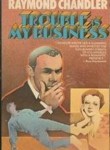 Well, it’s nearly time after a fair number of swell quotes to say so-long (for now – he’ll be back) to Raymond Chandler, with one last Cocktail Talk from a story within the collection Trouble Is My Business and Other Stories, this time “Red Wind,” which starts with the below quote that has a wind indeed in it. It’s a twisty kind of tall, beginning with that wind and a bar that’s across the street from Chandler’s PI Philip Marlowe’s apartment. Then there’s a lady, various angles, and lots of gumshoe-ing. Start it off with the below, and then read the whole story whydontcha? Oh, and also don’t miss all the other Raymond Chandler Cocktail Talks, cause you deserve to read them.
Well, it’s nearly time after a fair number of swell quotes to say so-long (for now – he’ll be back) to Raymond Chandler, with one last Cocktail Talk from a story within the collection Trouble Is My Business and Other Stories, this time “Red Wind,” which starts with the below quote that has a wind indeed in it. It’s a twisty kind of tall, beginning with that wind and a bar that’s across the street from Chandler’s PI Philip Marlowe’s apartment. Then there’s a lady, various angles, and lots of gumshoe-ing. Start it off with the below, and then read the whole story whydontcha? Oh, and also don’t miss all the other Raymond Chandler Cocktail Talks, cause you deserve to read them.
There was a desert wind blowing that night. It was one of those hot dry Santa Anas that come down through the mountain passes and curl your hair and make your nerves jump and your skin itch. On nights like that, meek little wives feel the edge of the carving knife and study their husbands’ necks. Anything can happen. You can even get a full glass of beer at a cocktail lounge.
I was getting one in a flossy new place across the street from the apartment house where I lived. It had been open about a week and it wasn’t doing any business. The kid behind the bar was in his early twenties and looked as if he had never had a drink in his life.
–Raymond Chandler, “Red Wind”
September 15, 2020
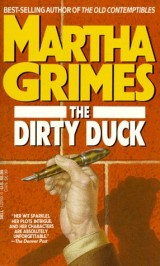 Not too long ago (if you consider the amount of time within all of time, for sure) I had a couple Cocktail Talks from a book by Martha Grimes called The Man With a Load of Mischief, a book I liked pretty well. Not sure why (as this often happens) I didn’t search out more books by Martha G at the time, but, well, I didn’t. However, recently (being at home more and thereby reading more) I was scouring the shelves for a book to re-read, and I picked up said Load, and liked it again. It – as it seems all her books starring Scotland Yard’s Richard Jury – is very pub-focused, which I also like (pubs, that is! and pub-focused books), and so decided I’d keep my eyes open for more. And, low and behold, with open eyes I found one, called The Dirty Duck. Now, Grimes in the book-back blurbs gets compared at times to Agatha Christie, and while she isn’t anywhere for me as good as the best Agatha, she may not be as bad as the worst Agatha either (cause when Agatha goes off the mark, it can be far off). With that said, The Dirty Duck isn’t a bad read. It’s a little, oh, lazy at times, and a little dated for being 1984 (though that was, now that I think about it, a ways behind us in time), but it’s also a lot of fun, has some pretty neat twists and a good mystery, and is very readable. Best of all – it takes place in Stratford Upon Avon! At least for the main, and you probably can guess that means lots of Shakespeare, which I’m always for, and also the main pub (the Dirty Duck pub, that is) is one I know, and one that features mightily (under the name The Mucky Mallard) in the tv show Shakespeare and Hathaway, which I am mightily (two “mightily”s!) fond of. If that wasn’t enough to get you going, the Thomas Nashe poem “Litany in a Time of Plague” provided key clues, and is not only a swell poem, but incredibly apt right now with our own plague. And if that wasn’t enough, there are some good drinking quotes in the book, starting with the below.
Not too long ago (if you consider the amount of time within all of time, for sure) I had a couple Cocktail Talks from a book by Martha Grimes called The Man With a Load of Mischief, a book I liked pretty well. Not sure why (as this often happens) I didn’t search out more books by Martha G at the time, but, well, I didn’t. However, recently (being at home more and thereby reading more) I was scouring the shelves for a book to re-read, and I picked up said Load, and liked it again. It – as it seems all her books starring Scotland Yard’s Richard Jury – is very pub-focused, which I also like (pubs, that is! and pub-focused books), and so decided I’d keep my eyes open for more. And, low and behold, with open eyes I found one, called The Dirty Duck. Now, Grimes in the book-back blurbs gets compared at times to Agatha Christie, and while she isn’t anywhere for me as good as the best Agatha, she may not be as bad as the worst Agatha either (cause when Agatha goes off the mark, it can be far off). With that said, The Dirty Duck isn’t a bad read. It’s a little, oh, lazy at times, and a little dated for being 1984 (though that was, now that I think about it, a ways behind us in time), but it’s also a lot of fun, has some pretty neat twists and a good mystery, and is very readable. Best of all – it takes place in Stratford Upon Avon! At least for the main, and you probably can guess that means lots of Shakespeare, which I’m always for, and also the main pub (the Dirty Duck pub, that is) is one I know, and one that features mightily (under the name The Mucky Mallard) in the tv show Shakespeare and Hathaway, which I am mightily (two “mightily”s!) fond of. If that wasn’t enough to get you going, the Thomas Nashe poem “Litany in a Time of Plague” provided key clues, and is not only a swell poem, but incredibly apt right now with our own plague. And if that wasn’t enough, there are some good drinking quotes in the book, starting with the below.
One of these Americans, Miss Gwendolyn Bracegirdle, who had never had more than an ounce of sweet sherry at a time on the veranda of her huge pink-stuccoed house in Sarasota, Florida, was standing with a friend in a shadowy corner of the terrace getting sloshed.
“Oh honey, not another! This here’s my second – what do they call it?”
“Gin.” Her companion laughed.
“Gin!” She giggled. “I definitely couldn’t.” But she held her glass in a way that said she definitely could.
–Martha Grimes, The Dirty Duck
Tags: Bars, Cocktail Talk, Father Brown Part II, Gin, Litany in a Time of Plague, Martha Grimes, pubs, Stratford Upon Avon, sweet sherry, The Dirty Duck
Posted in: Bars, Cocktail Talk, Gin, Sherry
May 19, 2020
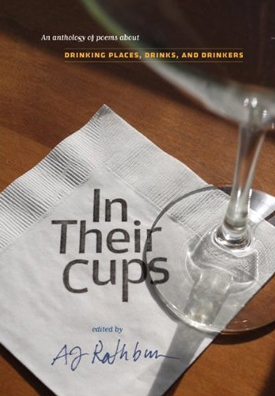 Well, I know what I’m doing today: waiting around watching my mailbox, sidewalk, and street for the postal person who today is supposedly delivering to me the new book of poems by Ed Skoog, called Travelers Leaving for the City. At least, I was told it would arrive today, when I ordered it. Hopefully you are doing the same thing – unless you’re lucky enough that your copy has already been delivered? – but if you aren’t, then for gosh sakes make your life better by ordering now. If, by some strange and cruel twist of fate, you aren’t already acquainted with Skoog (feels that should be all-capped, SKOOG, but I’m resisting. Or not), then let me tell you, not only is he a genius poet and writer, but also a champ banjo player, snappy dresser, fleet-footed dancer, and more, but also one of the swellest bar companions you could ever desire. While I’m waiting to spend many hours devouring his newest, I thought I’d ramp up my synapses by re-reading one of his poems from In Their Cups: An Anthology of Poems About Drinking Places, Drinks, and Drinkers. He has two poems in there – both awesome – as well as a few translations (also awesome), which he can do cause he is, as mentioned, a genius. In the feeling of community, I felt you also might want to read a snatch of Skoog if your copy of the latest hasn’t shown, and so here we are with the below.
Well, I know what I’m doing today: waiting around watching my mailbox, sidewalk, and street for the postal person who today is supposedly delivering to me the new book of poems by Ed Skoog, called Travelers Leaving for the City. At least, I was told it would arrive today, when I ordered it. Hopefully you are doing the same thing – unless you’re lucky enough that your copy has already been delivered? – but if you aren’t, then for gosh sakes make your life better by ordering now. If, by some strange and cruel twist of fate, you aren’t already acquainted with Skoog (feels that should be all-capped, SKOOG, but I’m resisting. Or not), then let me tell you, not only is he a genius poet and writer, but also a champ banjo player, snappy dresser, fleet-footed dancer, and more, but also one of the swellest bar companions you could ever desire. While I’m waiting to spend many hours devouring his newest, I thought I’d ramp up my synapses by re-reading one of his poems from In Their Cups: An Anthology of Poems About Drinking Places, Drinks, and Drinkers. He has two poems in there – both awesome – as well as a few translations (also awesome), which he can do cause he is, as mentioned, a genius. In the feeling of community, I felt you also might want to read a snatch of Skoog if your copy of the latest hasn’t shown, and so here we are with the below.
The Last Saturn Bar Poem
Around the art barn, Mike Frolich’s bar-tab
bartered paintings hang the hell that rose with him
from the Gulf of Mexico floor too fast, torturing
blood with air: maniac fish, demon in a diving bell,
and then from cadmium sunset through marsh comes
the boat bearing forward in grand roving the name
O’Neal, our bartender. Theirs are the dreams we enter,
entering the Saturn Bar’s owly heat re-tooled for unlovely
loss, the rattled corner leaning away from Chartreuse, neat,
and when I’m able to dream jukebox damaged warbling,
a Saturn-like-thing opens within me, but this is the last
Saturn Bar poem–I’ll try, I’ll try–to stop singing
shadows of St. Claude and Clouet on security camera
pavement grays we keep talking about with increasing
reluctance, ready to move on to fresh bewilderments,
spiraling neon, neon that lights up my nameless shot.
–The Last Saturn Bar Poem, Ed Skoog
Tags: Bars, Chartreuse, Cocktail Talk, drinking poet, Ed Skoog, Saturn Bar, the genius Ed Skoog, The Last Saturn Bar Poem
Posted in: Bars, cocktail poem, Cocktail Talk, Ed Skoog, Iron Bartender, Liqueurs
January 21, 2020
 The new year has begun, and I know one of your resolutions is probably to not miss any of the fine articles on the fine Seattle magazine, including those by me. So, I’m here to help with a couple handy links to some recent pieces. You can thank me later! Maybe with a drink.
The new year has begun, and I know one of your resolutions is probably to not miss any of the fine articles on the fine Seattle magazine, including those by me. So, I’m here to help with a couple handy links to some recent pieces. You can thank me later! Maybe with a drink.
 I have a tear in my eye, as while I could probably have a fair more Cocktail Talks from the Charlie Dickens collection of essays The Uncommercial Traveller, for now (but perhaps not forever), this will our last one. If you’ve missed any of the previous four, then be sure to read The Uncommercial Traveller Cocktail Talks Part 1, Part II, Part III, and Part IV, and while you’re in the reading mood, check out all the Dickens Cocktail Talks. Don’t read so much that your eyes tire, however, as you won’t want to miss the below quote. From one of the laugh-out-loud-ier pieces in the collection (and there are many funny scenes throughout, so that’s saying something), called “A Little Dinner in an Hour,” the below quote is just a small part of a regrettable dining experience Dickens has with his pal Bullfinch, when they are traveling for some business and decide to book a meal at a local spot that once was rumored to be worthy. But now leaves much to be desired! Ah, I wish I could have been there to watch it all unfold (if not to actually partake in it). A fine end to our Cocktail Talk tour through the book. Sherry, please!
I have a tear in my eye, as while I could probably have a fair more Cocktail Talks from the Charlie Dickens collection of essays The Uncommercial Traveller, for now (but perhaps not forever), this will our last one. If you’ve missed any of the previous four, then be sure to read The Uncommercial Traveller Cocktail Talks Part 1, Part II, Part III, and Part IV, and while you’re in the reading mood, check out all the Dickens Cocktail Talks. Don’t read so much that your eyes tire, however, as you won’t want to miss the below quote. From one of the laugh-out-loud-ier pieces in the collection (and there are many funny scenes throughout, so that’s saying something), called “A Little Dinner in an Hour,” the below quote is just a small part of a regrettable dining experience Dickens has with his pal Bullfinch, when they are traveling for some business and decide to book a meal at a local spot that once was rumored to be worthy. But now leaves much to be desired! Ah, I wish I could have been there to watch it all unfold (if not to actually partake in it). A fine end to our Cocktail Talk tour through the book. Sherry, please!























 The new year has begun, and I know one of your resolutions is probably to not miss any of the fine articles on the fine
The new year has begun, and I know one of your resolutions is probably to not miss any of the fine articles on the fine 
